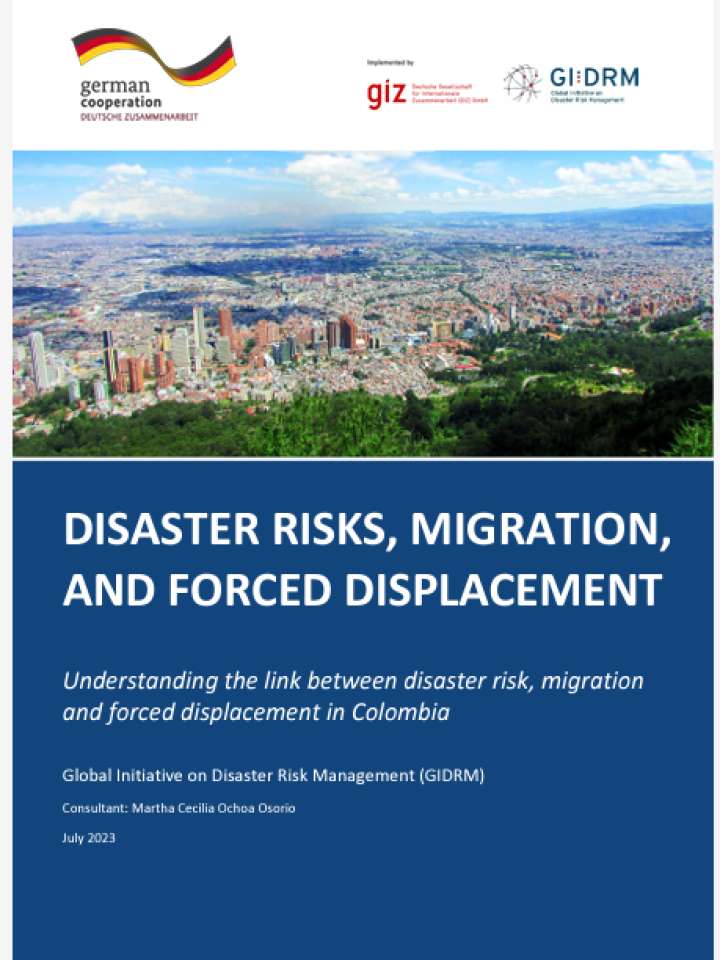International development in a contested world: ending extreme poverty and tackling climate change
By examining the link between disaster risk conditions in the host communities and the vulnerability of migrants, the report aims to highlight the potential of reducing risks by incorporating risk-informed development approaches. As a result of the social, economic, and political crisis in Venezuela, more than 2.4 million migrants and displaced people arrived in Colombia since 2015.
Some of the recommendations to reduce barriers related to fostering resilience include:
- Allow for and empower a wide and continued participation of civil society. Ensure that the community and those in vulnerable situations are involved in decision-making processes that deal with risks, including those related to intersectionality.
- Ensure capacity building trainings to reduce, prepare for, manage and respond to disaster risk. −
- Use clear and targeted risk communication with easy concepts and measures (in capacity building, awareness campaigns, early warning systems).
- Monitor how power structures and intersectional categories in a context change depending on stressors, such as climate change, fragility, or disaster impacts.
- Refrain from simplifying a context – acknowledge the complexity. Avoid generalizations and recognize intragroup differences in risk exposure, vulnerability and that communities are neither homogenous nor static. Find measures to ensure the involvement of individuals and groups in particularly vulnerable situations.
Explore further
